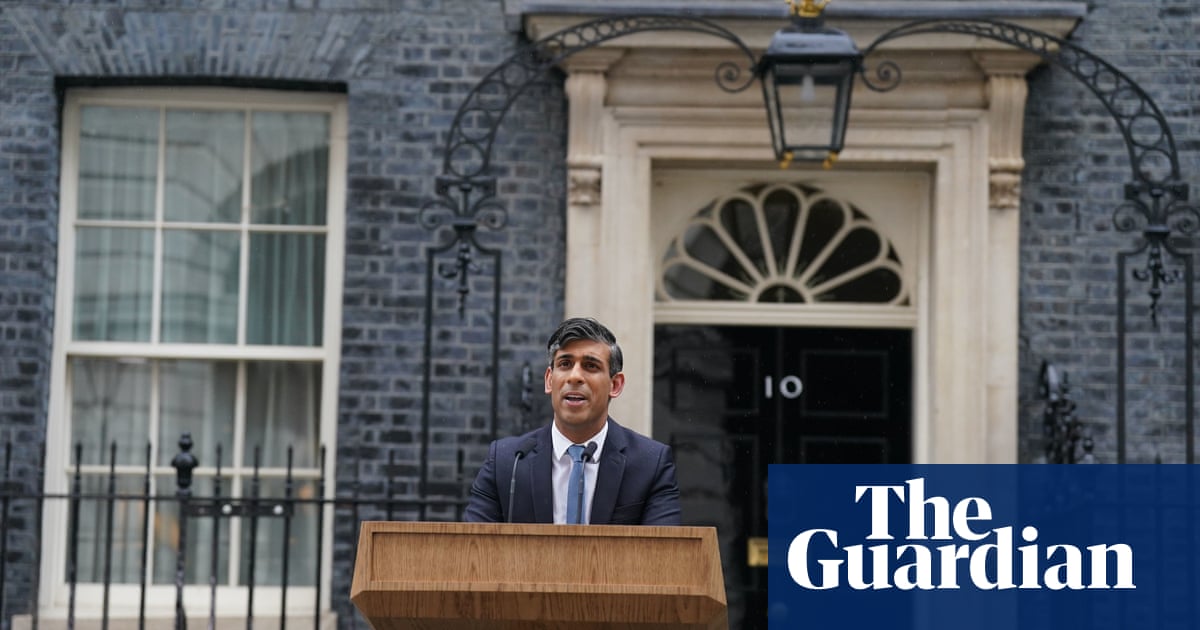
When millions of Britons believe rioting is justified over the soaring cost of living, it’s not hyperbole to describe the nation as a powder keg. According to a ComRes poll commissioned by the Independent, 29% of voters believe violent disorder is appropriate given the circumstances. Among 18- to 24-year-olds, nearly half think rioting is justified; and even among 35- to 44-year-olds it’s over 40%. If such a large chunk of the electorate believes that it’s justifiable to smash stuff up in protest even before the projected hike in energy prices plunges millions of households below the waterline, what fury awaits this winter?
Before I’m arrested for incitement under the Public Order Act, this is no clarion call for riots. It is to say that a democracy that is unable to satisfy the basic needs of its citizens brings mass unrest on itself. Martin Luther King aptly observed that “a riot is the language of the unheard”; how else can ordinary people force the powerful to listen? Waiting for a general election that may be two years away will not deal with the imminent humanitarian catastrophe we face.
This – entirely legitimate – rage needs to be channelled in ways that can actually force the government to satisfy popular demands, without laying waste to major British cities. That means urgently reviving the tradition of mass peaceful civil disobedience and direct action – the tactics that helped secure many of our rights and freedoms: from women’s right to vote, to the mass movement that brought down Margaret Thatcher’s poll tax. If you’re wondering why governments in other countries have offered more to tackle looming social calamities, there’s a straightforward answer. They still expect mass protest if they fail.
Recently, a seasoned political commentator remarked on findings showing that the poorest households in France were facing one of the smallest increases in cost of living in Europe. “Another one of those charts which makes you wonder why the French are always so angry with their government,” he mused. But those two facts are surely linked: France’s rulers have a rational fear that their citizens will express their rage with upheaval in the streets and town squares, and this inhibits attacks on their living standards.
France is, of course, a self-consciously revolutionary society that sanctifies the sovereignty of the people. This provides legitimacy to explosions of popular unrest. The results over the decades speak for themselves. In May 1968, a brutal police crackdown on rebellious students acted as a trigger for a general strike and mass revolt. Fearing revolution, President Charles de Gaulle fled the country, and only the dissolution of the National Assembly prevented the overthrow of the government. With De Gaulle triumphing in fresh elections later that year, it is tempting to dismiss the rebellion as a failure, but France’s terrified establishment were compelled to make drastic concessions in the so-called Grenelle agreements, above all accepting a massive hike in workers’ wages.
A key negotiator at Grenelle was the ambitious rising Gaullist star Jacques Chirac. Nearly three decades later, as president, he would also become the target of popular wrath after his government sought to slash social security, freeze public sector wages and raise the retirement age of railway workers. While Chirac’s prime minister, Alain Juppé, was adamant that he would stand his ground, weeks of mass strikes, workplace occupations and popular protests forced the administration into a grinding retreat.
Emmanuel Macron, too, believed his triumph in the 2017 French presidential elections offered a mandate to impose regressive economic policies. His attempt to introduce a carbon tax – a policy that violated the basic principle of a “just transition”, wherein attempts to address the climate emergency should not rest on the shoulders of the poorest – led to a social explosion in the form of the gilets jaunes, or yellow jackets. Once again, the people in the streets won. “No tax is worth jeopardising the unity of the nation,” Macron’s chastened prime minister, Édouard Philippe, eventually conceded. Similarly, mass protests played a key role in forcing Macron to water down plans to raise the pension age.
Much attention has rightly focused on how public ownership of energy has allowed France to limit energy bill increases to 4% for most households. But any French government without a political death wish would surely prefer to invest billions in protecting living standards than drive the masses to the barricades. Put simply, France’s rulers fear their people. In Britain, as things stand, they do not.
The reasons for this are not culturally ingrained. Our own establishment prefers us to forget it, but the English had a revolution nearly a century and a half before the French, and from Chartists to sufragettes to trade unionists, rebellion is a tradition as English as queueing or afternoon tea. Our complicity in forgeting our own history – nurturing a myth that we are innately placid and will confine our unrest to angrily bellowing at our TV or mobile screens – allows our rulers to justifiably believe they can get away with almost anything.
The launch of Enough is Enough – a new mass campaign to fight the cost of living emergency – offers real hope that popular resistance is coming back to these shores. That it has been launched by trade unions – not least the union of Rail, Maritime and Transport Workers (RMT) and its leader, Mick Lynch – is particularly important. This is a movement with an unapologetically working-class leadership. Its task is straightforward: a crash course French lesson for Liz Truss’s likely government. If our rulers are terrified of their own people, drastic measures to protect living standards will follow quicker than you can say “Maximilien Robespierre”. Temperatures may plunge, bills may rise, but a hot winter could be upon us.
Owen Jones is a Guardian columnist












